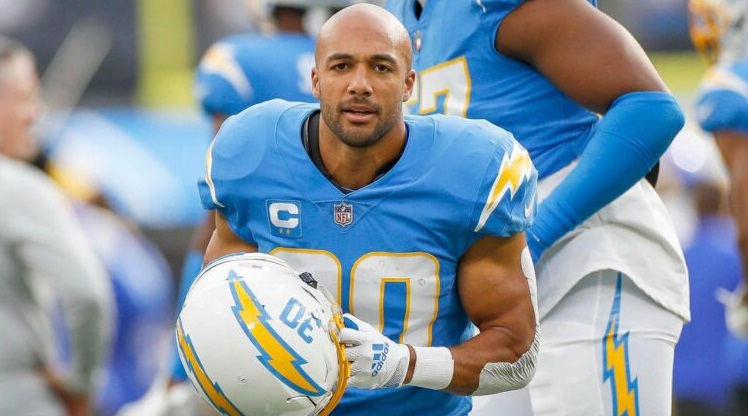Once breaking news occurred in the NFL’s franchise tag deadline on Monday regarding new long-term contracts for the three remaining players with the franchise tag, a trio of Pro Bowl running backs: Josh Jacobs of the Las Vegas Raiders, Saquon Barkley of the New York Giants and Tony Pollard of the Dallas Cowboys
The NFL’s top RBs will meet via Zoom on Saturday to discuss solutions for the financially depressed market, according to the report.

Chargers running back Austin Ekeler, who became the seventh player since the 1970 AFL/NFL merger to lead the league in touchdowns scored in consecutive seasons, is organizing the meeting. Ekeler has not received a contract extension from the Chargers despite his historic efforts, and could not find interest in the trade market. All he was given was additional incentive bonuses for the 2023 season.
Green Bay Packers Pro Bowl running back Aaron Jones took a pay cut to stay with the Greens and Browns despite rushing for a career-high 1,121 rushing yards, the tenth-most in the NFL. Cincinnati Bengals running back Joe Mixon also restructured his contract to make it more affordable for AFC runners-up. Free agent Dalvin Cook, who is the only player in the entire NFL with at least 1,100 rushing yards in each of the last four seasons, was cut entirely by the Minnesota Vikings this offseason.
Six years ago, in 2017, the figure of the running back franchise tag was $12.1 million. Today, that figure has dropped by $2 million to $10.1 million, which is what Jacobs, who led the NFL in rushing yards (1,653) and scrimmage (2,053) in 2022, Barkley and Pollard will earn in 2023 on their fully guaranteed one-year contracts. On the other hand, franchise tag figures have increased for quarterbacks ($21.2 million in 2017 to $32.4 million in 2023), wide receivers ($15.6 million in 2017 to $19.7 million in 2023), offensive linemen ($14.2 million to $18.2 million), defensive ends ($16.9 million in 2017 to $19.7 million in 2023) and cornerbacks ($14.2 million in 2017 and $18.1 million in 2023).
Options such as differently structured contracts as outlined in CBS Sports’ Joel Corry or perhaps asking the NFL Players Association to help them try to get the current collective bargaining agreement, which is in effect through the 2030 season, an addition could be on the table for Saturday night’s agenda. As illustrated in Hollywood, where both writers and actors are currently on strike, there is more power on a collective, unified front when a better compensation situation is called for. That’s something NFL running backs are also trying to build and accomplish right now.